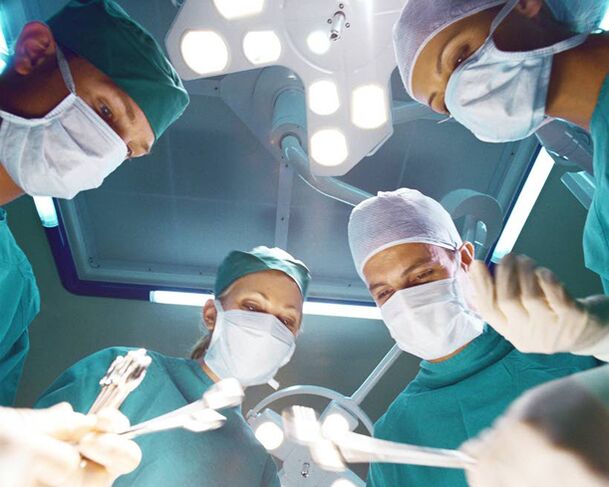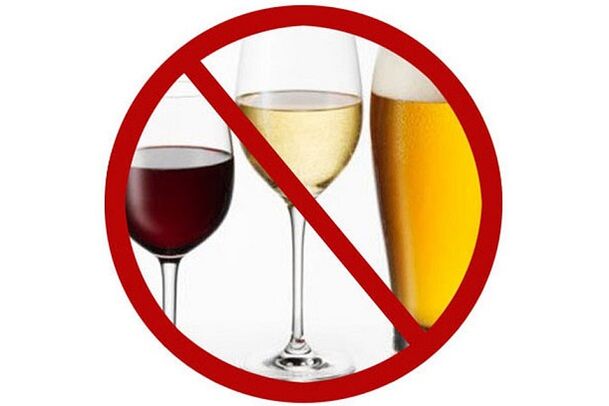Surgical intervention is a serious manipulation for which it must be properly prepared. All recommendations on this matter should be made by an expert.
Special attention should be paid to diet and alcohol consumption after surgery. In fact, in some cases, even a small dose of ethanol contained in alcoholic beverages can cost a person's health and even life.
In order not to harm your own body and contribute to your early recovery, you should follow the advice given in this article.

Are anesthesia and local anesthesia compatible with alcohol?
Everyone should understand that anesthesia and alcohol are incomparable concepts. And there are good reasons for that. To start with, let's find out what the types of anesthesia are - they are local and general anesthesia.
Anesthesia is the introduction of a drug into the human body that promotes the temporary loss of tissue sensitivity. There is a blockage in the transmission of nerve impulses, as a result of which signals do not enter the brain and there is no reverse reaction. Therefore, the person does not feel painful sensations during the surgery.
Local anesthesia has a specific period of action. As a rule, this is the time allotted for the operation and an additional 2-3 hours thereafter. A person comes out of anesthesia gradually, but alcohol after a local anesthetic can cause the effect to wear off instantly. And this can cause pain, which is quite difficult to remove with the help of medication.
Can I drink alcohol after anesthesia (general)? This is not worth it, as it can lead to far more serious consequences than in the previous case:
- Severe pain at the surgery site.
- Tension or weakening of muscle tissue.
- Headache, dizziness.
- Nausea, vomiting and consequently dehydration.
- Anaphylactic shock.
- Disturbances in the functioning of the nervous system.
Drinking alcohol after surgery and possible consequences
Doctors do not recommend drinking alcohol after surgery for a reason. And it's not about the first day or week after the procedure. The withdrawal period can last for several weeks or even months. Its duration depends on the complexity of the procedure performed and the patient's health status.
Before or at the end of the operation, the treating physician gives the patient some recommendations. They are related to lifestyle, nutrition, alcohol consumption and more. And he gives them not only like that, but to avoid unwanted consequences and complications.
Why is it prohibited to drink alcohol after the operation:
- Use anesthesia not compatible with alcohol. Otherwise, a great blow will be dealt to health, which can affect the functioning of vital systems and organs.
- Prescription of antibiotics for rehabilitation after surgery. They are also not compatible with alcohol. Also, even at the end of the course of taking them, it's worth giving up strong drinks for at least a week. Otherwise, its effect can be minimized.
- Poor tissue healing. This can be caused by drinks that trigger fermentation processes in the body. Could be beer. So it's better to refuse.
- Weakening of the body's immune defenses. If you start drinking alcohol the next day after surgery, it can affect your immune system. The result will be latent diseases or exacerbation of chronic pathologies.
- Blood clotting disorder. A small dose of ethanol entering the body can cause internal bleeding, poor scarring and long-term scarring of the affected skin.
On top of this, some surgical interventions involve the total rejection of the use of ethanol in any form. Since it can cause significant damage to the organism and affect the quality of human life in the future.
Experts agree that after surgery, the body needs time to recover. And for that, it is necessary to create the right conditions - adhere to the correct diet and completely abandon alcohol for at least 30 days.

Estimated time of alcohol consumption after surgery
As already mentioned, the time after which alcohol can be consumed depends on the patient's health status and the complexity of the operation performed. Therefore, it is difficult to clearly define the period after which it can be used. And the doctor should give some advice on this matter, who should be contacted with this issue.
How long after the operation can you drink alcoholic beverages (approximate terms):
- Alcohol after laparoscopy - may be completely prohibited in some cases. This is due to the fact that, after laparoscopy, to keep the body normal, people are required to take certain medications throughout their lives. Almost all of them are incompatible with alcohol. It is necessary to completely give up alcohol if the gallbladder is removed. After a laparoscopy performed in the gynecological part, you can buy a small amount of alcohol after a month and a half.
- The timing of alcohol consumption after laparotomy is the same as in the previous case.
- Drinks containing ethyl alcohol should be treated with extreme caution after heart surgery. You should not abuse them as this can cause serious problems - heart failure, stroke, heart attack. If there are no complications after surgery, alcohol can be administered no earlier than 3-4 weeks after surgery.
- The ideal period of abstinence from alcohol after eye surgery is 3 months. This time is sufficient for complete recovery or pain relief. Why exactly 3 months? The fact is that in most cases the rehabilitation period lasts from 1 to 3 months. At this time, patients are prescribed eye drops or restorative pills, and almost all are incompatible with alcohol.
- Plastic surgery - it is recommended to stop drinking alcohol for a period of 2 to 4 weeks. If there are complications or if the patient is prescribed a course of rehabilitation, this can take several months.
- After removal of the pancreas, alcohol consumption is not recommended. Especially in the first 2-3 years after the operation.
- Removal of Appendicitis - Alcoholic beverages are strictly prohibited for 3 weeks, as are some foods.
- Surgery to remove the tumor - Alcohol is taken only with the doctor's permission. In fact, to restore the body, medications that are prohibited from taking along with alcohol may be prescribed.
All terms given above are conditional and are defined exclusively by the treating physician. Before taking another dose of alcohol, it is worth remembering the risk to the body. After the operation, it is weakened, needs to be restored and the specialist's recommendations are followed. Therefore, do not overload it with ethanol, which will significantly increase the rehabilitation period.
























